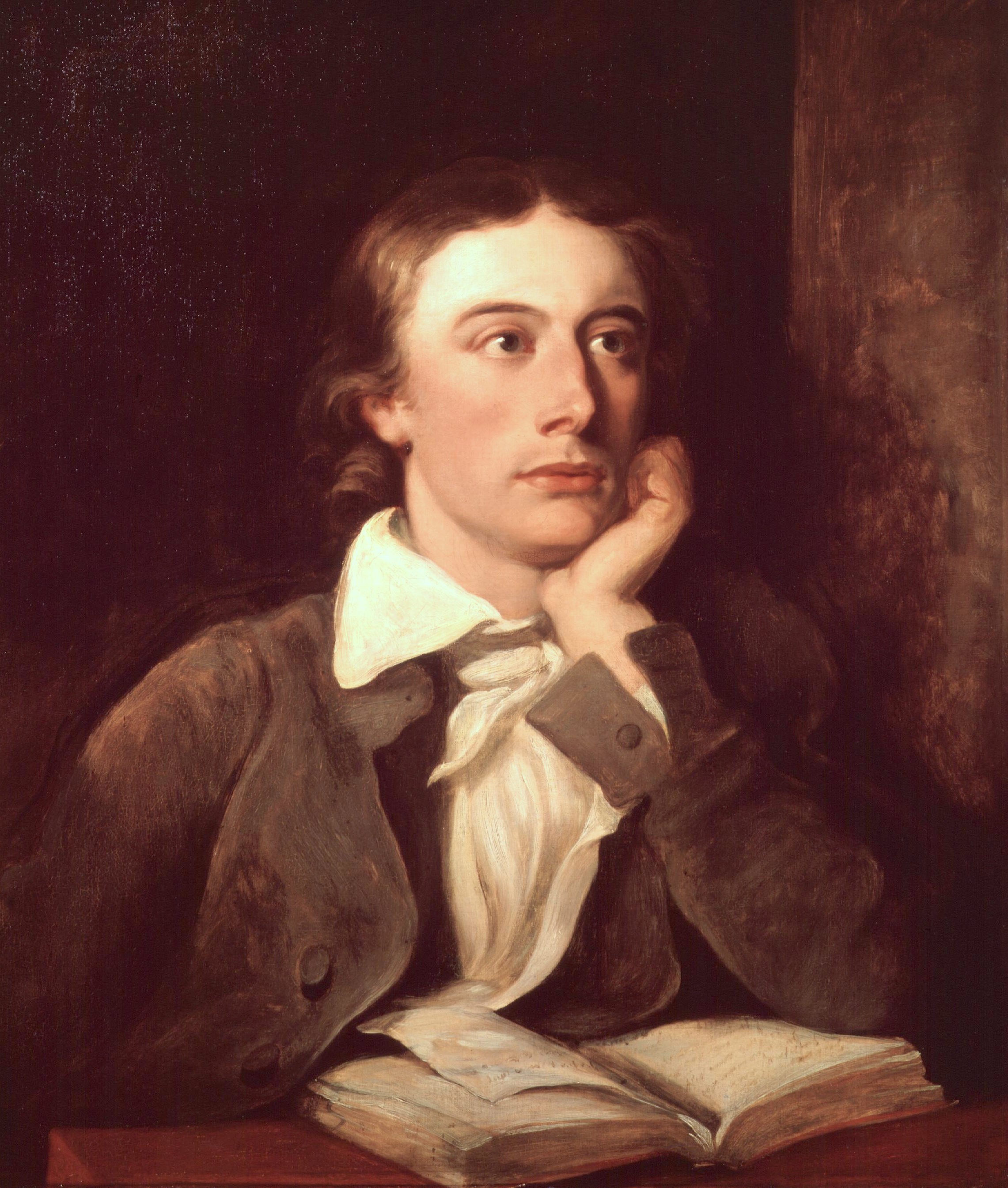Bk. IV, l. 173
Endymion (1818)
Source: The Complete Poems
Context: To Sorrow
I bade good-morrow,
And thought to leave her far away behind;
But cheerly, cheerly,
She loves me dearly;
She is so constant to me, and so kind:
I would deceive her
And so leave her,
But ah! she is so constant and so kind.
John Keats Quotes
Letter to John Hamilton Reynolds (February 3, 1818)
Letters (1817–1820)
“And when thou art weary I'll find thee a bed,
Of mosses and flowers to pillow thy head.”
Source: The Complete Poems
“Was it a vision, or a waking dream?
Fled is that music: — Do I wake or sleep?”
Stanza 8
Poems (1820), Ode to a Nightingale
“I will clamber through the clouds and exist.”
Source: Letters of John Keats to His Family and Friends
To Fanny Brawne (July 25, 1819)
Letters (1817–1820)
Source: Bright Star: Love Letters and Poems of John Keats to Fanny Brawne
“Through buried paths, where sleepy twilight dreams
The summer time away.”
Source: Bright Star: Love Letters and Poems of John Keats to Fanny Brawne
“I must choose between despair and Energy──I choose the latter.”
Source: Letters of John Keats
Source: Bright Star: Love Letters and Poems of John Keats to Fanny Brawne
“Already with thee! tender is the night.”
Stanza 4
Poems (1820), Ode to a Nightingale
Source: Selected Letters
“And how they kist each other's tremulous eyes.”
Source: Bright Star: Love Letters and Poems of John Keats to Fanny Brawne
“Scenery is fine — but human nature is finer.”
Letter to Benjamin Bailey (March 13, 1818)
Letters (1817–1820)
Letter to John Taylor (February 27, 1818)
Letters (1817–1820)
Context: In Poetry I have a few axioms, and you will see how far I am from their centre. I think Poetry should surprise by a fine excess and not by singularity — it should strike the reader as a wording of his own highest thoughts, and appear almost a remembrance — Its touches of Beauty should never be halfway thereby making the reader breathless instead of content: the rise, the progress, the setting of imagery should like the Sun come natural to him — shine over him and set soberly although in magnificence leaving him in the luxury of twilight — but it is easier to think what Poetry should be than to write it — and this leads me on to another axiom. That if Poetry comes not as naturally as the leaves to a tree it had better not come at all.
"Bright Star" (1819)
Context: Bright star! would I were stedfast as thou art-
Not in lone splendour hung aloft the night
And watching with eternal lids apart,
Like nature's patient, sleepless Eremite,
The moving waters at their priestlike task
Of pure ablution round earth's human shores.
Letter to G. and F. Keats (December 21, 1817)
Letters (1817–1820)
“Can death be sleep, when life is but a dream,
And scenes of bliss pass as a phantom by?
---"On death”
Source: Complete Poems and Selected Letters
“When it is moving on luxurious wings,
The soul is lost in pleasant smotherings.”
Source: Bright Star: Love Letters and Poems of John Keats to Fanny Brawne
Stanza 6
Poems (1820), Ode to a Nightingale
Source: Complete Poems and Selected Letters
Source: Bright Star: Love Letters and Poems of John Keats to Fanny Brawne
“Sweet are the pleasures that to verse belong,
And doubly sweet a brotherhood in song.”
"To George Felton Mathew" http://www.bartleby.com/126/11.html (November 1815)
Letter to Percy Bysshe Shelley (August 1820)
Letters (1817–1820)
“Music's golden tongue
Flatter'd to tears this aged man and poor.”
Stanza 3
Poems (1820), The Eve of St. Agnes
Letter to George and Georgiana Keats (March 19, 1819)
Letters (1817–1820)
“There is not a fiercer hell than the failure in a great object.”
Preface
Endymion (1818)
Bk. I, l. 453
Endymion (1818)
Letter to George Keats (September 21, 1819)
Letters (1817–1820)
Bk. II, l. 203
Hyperion: A Fragment (1819)
“Woman! when I behold thee flippant, vain,
Inconstant, childish, proud, and full of fancies.”
" Woman! When I Behold Thee Flippant, Vain http://www.bartleby.com/126/10.html", st. 1
Poems (1817)
Bk. I, l. 25
Endymion (1818)
Letter to Benjamin Bailey (November 22, 1817)
Letters (1817–1820)
“E’en like the passage of an angel’s tear
That falls through the clear ether silently.”
"Sonnet. To One Who Has Been Long in City Pent"
Poems (1817)
Sonnet, The Day is gone; reported in Bartlett's Familiar Quotations, 10th ed. (1919)
